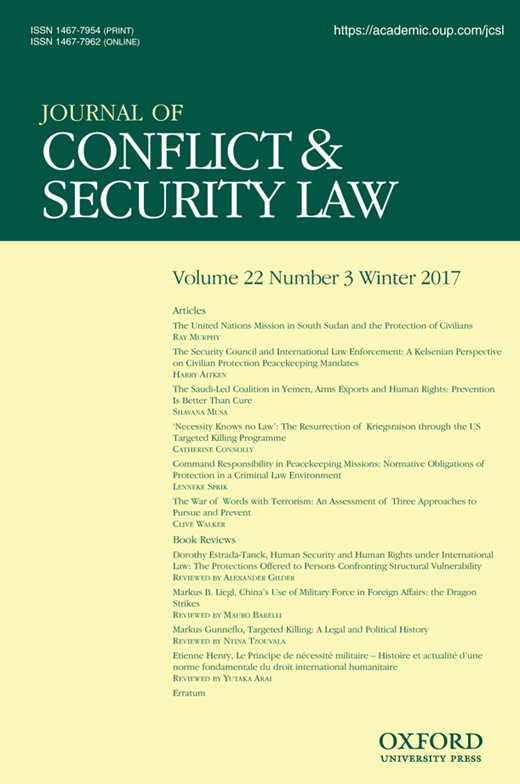-
Views
-
Cite
Cite
Yutaka Arai, Etienne Henry, Le Principe de nécessité militaire – Histoire et actualité d’une norme fondamentale du droit international humanitaire, Journal of Conflict and Security Law, Volume 22, Issue 3, Winter 2017, Pages 563–566, https://doi.org/10.1093/jcsl/krx012
Close - Share Icon Share
Extract
In this comprehensive work, Henry explores the historical evolution of military necessity and a number of issues relating to its conceptual boundaries and implications. After introductory chapters, Chapters III–V take readers on an enriching historical tour. Henry explains that the genesis of this concept as a rudimentary form was observable in antiquity. He then explores how it came to be framed in normative terms alongside the theological doctrines of just war theory in medieval Europe, and how, in the secularized (post-) Enlightenment discourses, it settled down as a fully fledged legal doctrine (albeit, with some confusion with the state of necessity).
Chapters VI–X turn to doctrinal and theoretical issues of more contemporary concern. Digging the troubled terrain of the doctrine of Kriegsraison, Henry sustains the thesis, albeit with more nuanced qualifications, that in the 19th century the amorphous notion of military necessity was ‘hijacked’ by some German authors and erroneously remoulded as a cognate of Kriegsraison. Those authors’ controversial approach was to hold military necessity as a ‘supra-legal’ ground (p 318) for exonerating transgressions of jus in bello, often combined with the dubious ground of self-preservation of a state (pp 64, 286–88, 299–300, 306–07, 365 and 683). In the wake of the atrocities of the two World Wars, the destiny of the doctrine of Kriegsraison was supposed to be sealed forever in its coffin.



